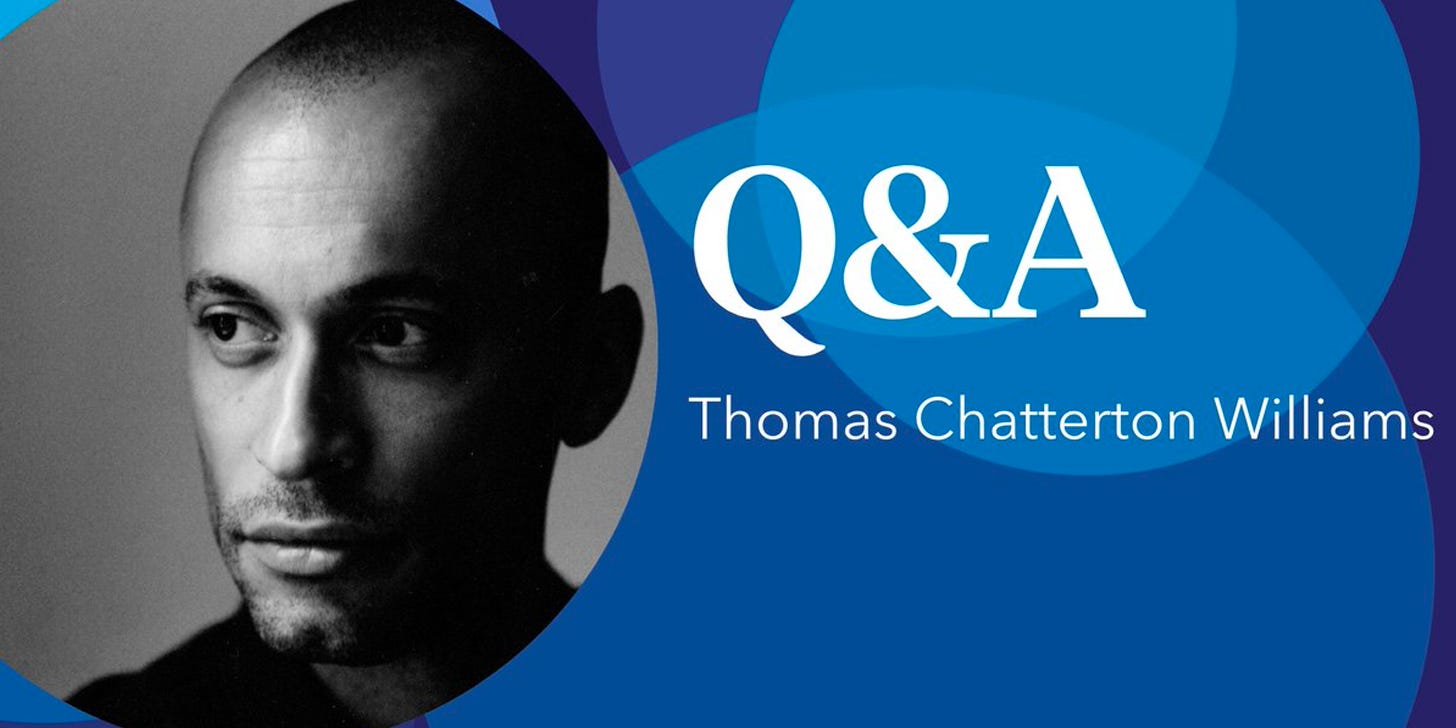Progressives push to cancel conservatives. Here's how the right is fighting back
For USA Today, FAIR Advisor John Wood, Jr. writes about our “age of social sanction,” and the ways political and discursive polarization is affecting our culture. In particular, Wood describes the response from the political right, which he calls “soft secessionism,” and which he describes as “a deliberate, but selective, effort to divorce major portions of the body politic away from the cultural influence of mainstream institutional society.” Wood is concerned about the overarching effects of this polarization:
The danger that comes from the social sanction of the left and the soft secessionism of the right is that in our efforts to ostracize others and remove ourselves from one another, we will abandon any efforts to call to mind what we have in common as Americans.
Can We Transcend Race While Fighting Racism?
In an interview with Aspen Ideas, FAIR Advisor Thomas Chatterton Williams discusses the evolution of his views on race, as described in his most recent book, Self-Portrait in Black and White: Unlearning Race, and the ways in which we can—and should—work against racism and discrimination in our society without accepting or reifying what he calls “the logic of the plantation that I had grown up with—that is, the all-American tradition of believing that ‘race’ is real and that it exists most significantly as a binary: one is either black or white.”
Williams also outlines the origins of the concept of race, the present-day effects of the exploitation it engendered, and how belief in race perpetuates them:
We are still living with the repercussions of that exploitation and subsequent ones, but that does not mean the categories it imposed on us are real or worth preserving one moment longer. And I don’t think you can oppose one without opposing the other. Which is why I don’t think you can be fully anti-racist while buying into or reproducing the habits of thought racism has created and that in turn give it power.
The Skin I’m In
For her Substack, The Second Swim, writer and Editor of Areo Magazine Iona Italia describes her lifelong experiences as the daughter of a Scottish mother and a Parsi father. She describes being “accused of having the wrong skin colour,” growing up “completely British,” despite being born in Pakistan, and the ways her heritage and experience have influenced her views on race and racism.
The current obsession with race and, often, race viewed in the narrowest terms—in terms of skin colour—unnerves me. For many, in these culture wars, your race is defined by how you look… There is a strong tendency to cling to an essential dichotomy between “white people” and “people of colour.” The deference to lived experience and the injunction to listen to people of colour both assume that the west, at least, is split into two basic categories of human being, whose lives, opinions and sensibilities divide along skin colour lines.
Let Everyone Freely Choose Their Gender and Race
For Tablet Magazine, psychiatrist Elliot S. Gershon writes about the ways “state-defined gender and racial identities” affect not just our individual identities, but also our social and political ones. “Doctrinal identity assignments,” he says, “routinely disregard voluntary identity choices, limit transitions, accentuate distinctions, and generate very severe reactions among those who are assigned to favored and unfavored groups.”
Gershon also contrasts and compares what he calls the “doctrine” of gender fluidity, and the concept of race:
Although there is a case to be made for gender transitions, there is a stronger case to be made for racial transitions. Gender as a social construct is very closely related to biological sex, an unambiguous characteristic of the vast majority of humans. Race is also a social construct, associated with statistical differences among population groups. Race, however, does not have a rational or scientific definition unambiguously applicable to all individuals, and for many people it is impossible to determine—leading to casually racist assumptions based on skin pigmentation or “one drop” theories that lack any legal or scientific currency.
11 Parents on How They Want Kids to Learn About History, Racism and Gender
The New York Times Editorial Board highlighted responses to questions from eleven focus groups with parents of all political and ethnic backgrounds regarding race, gender, history, and how their kids should be taught about these topics.
Questions included “Is there a moment in American history that you feel proud of?" “Is there a moment in American history that you feel ashamed of?” “What are the values that are important that you raise your kids with or that you think schools should focus on?” and “Name an American leader you admire”—a question which participants found most difficult to answer.
The Times also noted the parents’ concerns regarding how and what their children should be taught:
At a time when many parents nationwide want a greater say in what’s taught in schools and when some Republican leaders are restricting access to books and discussions of gender and sexual identity, the focus group wrestled in particular with the idea of facts versus interpretation, with some wanting interpretation taught strictly at home. Others felt interpretations needed to be updated.
The Mill Center Turns Down the Heat on Controversial Topics
For Free Black Thought, Ilana Redstone, Ellie Avishai, and Christina LaRose of The Mill Center write about how they founded The Mill Center because they were “increasingly concerned about the impact of broken discourse in our professional and personal communities.” Naming the organization after John Stuart Mill and inspired by his work On Liberty, The Mill Center is dedicated to encouraging a freer and more productive discourse:
After years of working independently in different parts of the US and Canada, with students from high school to college, we have each developed toolkits of learning resources to advance students’ critical thinking skills. Over the past year, we’ve collaborated to create a process that turns down the heat on controversial topics so educators and students can untangle complex issues together. The Mill Center’s goal is to teach the mindset, skills, and ground rules needed to broaden conversations and expand knowledge.
For audio versions of our FAIR News and FAIR Weekly Roundup newsletters, subscribe and listen to FAIR News Weekly on Apple Podcasts, Spotify, Google Podcasts, or via RSS feed.
Join the FAIR Community
Become a FAIR volunteer or to join a FAIR chapter.
Join a Welcome to FAIR Zoom information session to learn more about our mission, or watch a previously recorded session in the Members section of www.fairforall.org.
Take the Pro-Human Pledge and help promote a common culture based on fairness, understanding, and humanity.
Join the FAIR community to connect and share information with other members.
Share your reviews and incident reports on our FAIR Transparency website.










